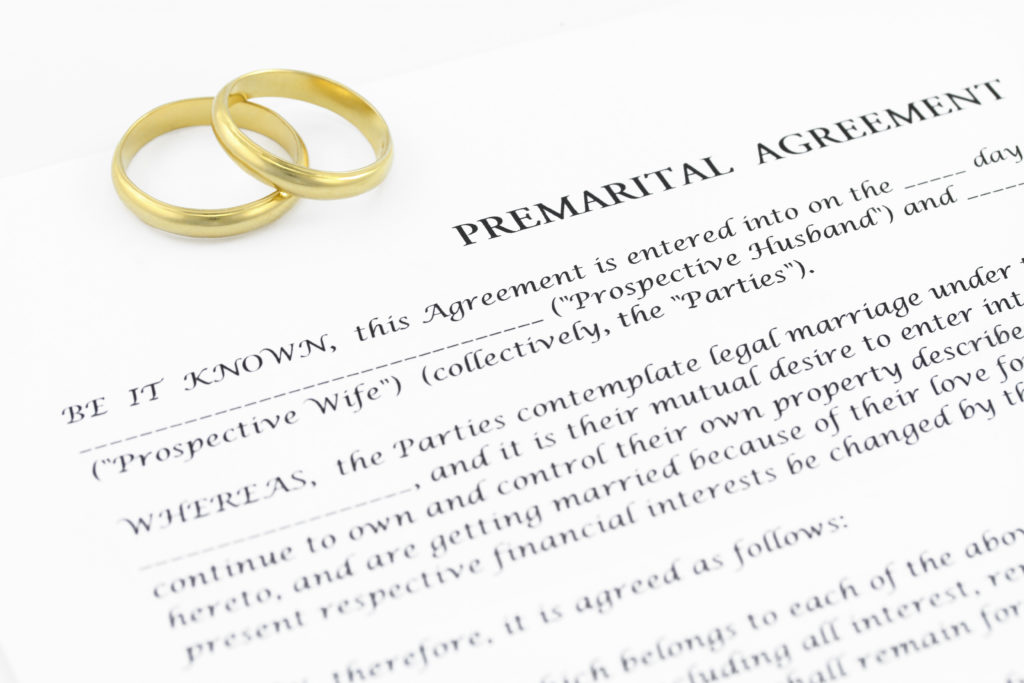Prenuptial Agreements and Divorce – Today’s guest blog is by the Riojas Law Firm. The opinions expressed by the author in this and all guest blogs are not necessarily those of Attorney Kevin Kensik.

Prenuptial Agreements and Divorce
Many modern couples are getting prenuptial agreements in order to secure their financials in a marriage. A prenuptial agreement is a contract between two people, which defines the division of assets in case they decide to get a divorce. Standard divorce law is pretty simple as it allows former husband and wife to split possessions equally. The process can be more emotionally and financially devastating for one of the individuals.
Prenuptial agreements have their perks as they offer the potential to curtail the conventional divorce procedure. The court does not need to meddle in various personal matters of the couple, and the marriage ends conveniently. Different states have different rules and regulations regarding what can and cannot be included in a prenup. Although several provisions are unbiased, it is best to play it safe and consult a professional divorce attorney in your area.
Things You May Include in a Prenuptial Agreement
A prenup allows you to safeguard property or savings that you made before entering the relationship. You may also protect valuable gifts from friends and inheritance from blood relations acquired at any point in time. Many people want to keep their family heirlooms between immediate family members so that they are preserved for generations to come.
Marital property refers to assets that you and your spouse may have purchased together or during the matrimonial period. You can keep any possession to yourself as long as you can prove that it was yours before the marriage, and only marital property will be divided.
More than twenty percent of marriages end because of financial problems. One spouse is likely to earn much more than the other and both shall have dissimilar spending habits. With a prenup, a person can protect himself/herself from the debt generated by the partner. Both parties are obligated to reveal all their assets from the start, so none should encounter monetary loss due to the other’s mistakes.
Generally, the spouse with the lower income is entitled to receive financial support/alimony from the other in case separation or divorce occurs. You can save yourself from paying spousal support after ending the relationship, by including the clause in your prenuptial agreement. Many individuals may have children from earlier relationships and wish to include them in their list of successors. It is smart to add a provision that would shield their rights in case of sudden demise.
What isn’t acceptable in a Prenuptial Agreement
Prenuptials are highly effective in managing financial affairs, but they have no control over child custody and child support. Such matters cannot be taken into account before a divorce, and only the court has authority over providing the final verdict. The legal system is bound to choose what appears to be best for the child. If either parent begs to differ, he/she will have to figure it out privately with the ex-spouse.
The court may also reject any provisions in the agreement that encourage annulment of the marriage or relate to something illegal. The chief purpose of a prenup is the organization of financial matters, so it must not present articles that refer to personal issues. Arrangements regarding routinely tasks or domestic chores, like ‘who shall do the cleaning’ or ‘who shall buy the groceries’ will not be entertained by law.
Tags: Divorce, Prenuptial Agreements, Prenuptial Agreements and Divorce, Torrance Divorce
